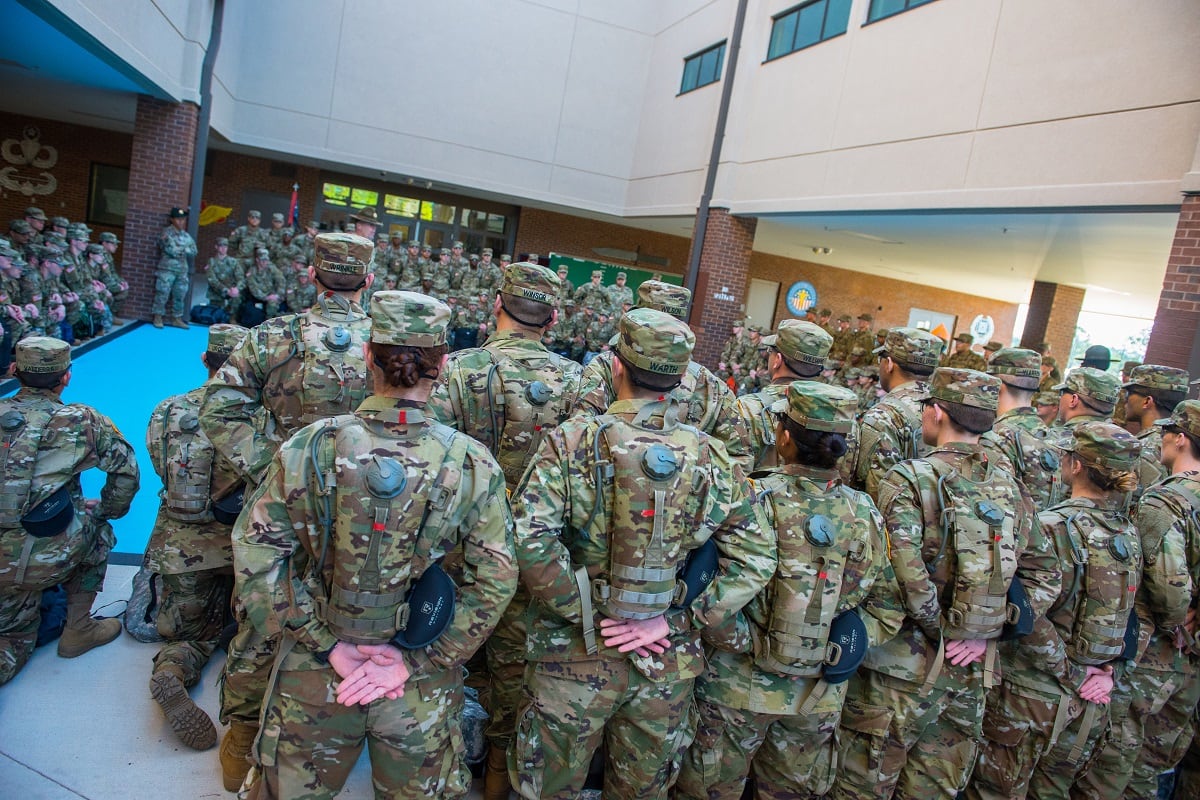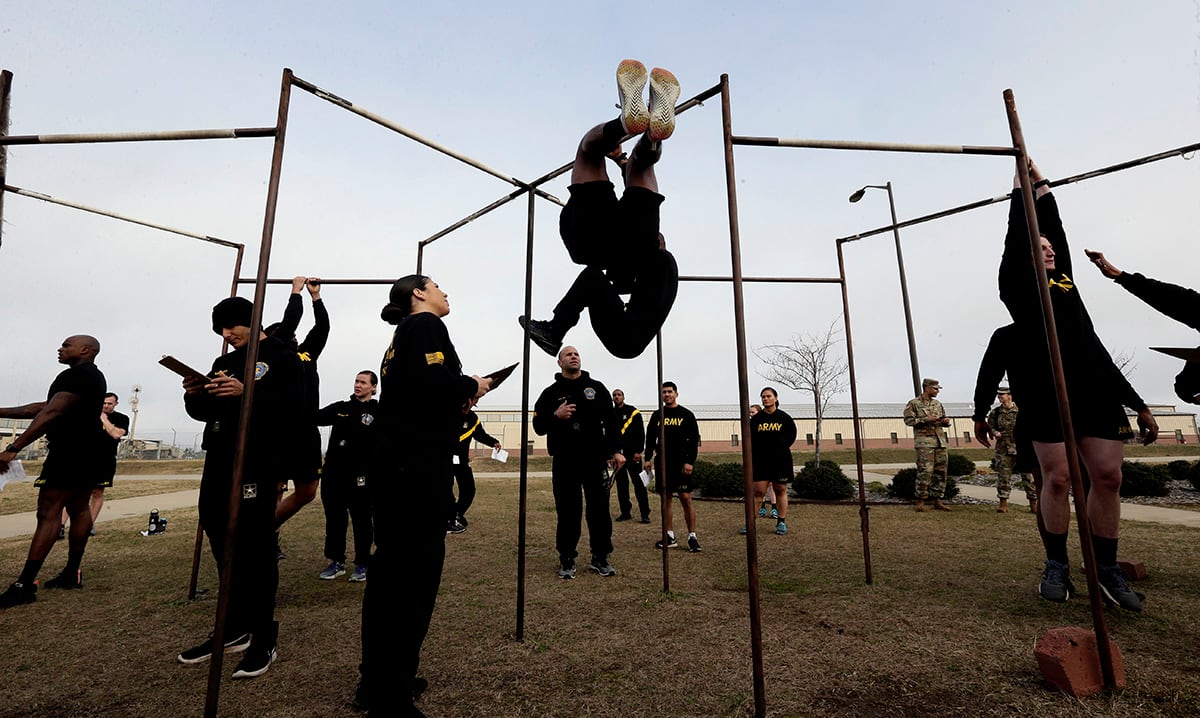The Army’s top enlisted soldier faced tough questions from lawmakers Monday about gender disparities plaguing the Army’s new fitness test, an apparent lack of progress in fielding equipment for women and sexual assault numbers that aren’t moving in the right direction.
The House Appropriations hearing started with pointed questions for Sergeant Major of the Army Michael Grinston from Rep. Debbie Wasserman Schultz, D-Fla., who called the new Army Combat Fitness Test “unfair” to women and worried it would hurt recruitment and retention.
“Figures from April show 44 percent of women failed to ACFT, compared to just 7 percent of men,” Wasserman Schultz said. “It looks like you have a problem and I hope you recognize that.”
The Army announced this spring changes to the ACFT that make the two-minute plank a permanent alternative to the leg tuck event, which women have been failing at a higher rate than men.
“The goal of the [ACFT] is to make us more fit for the task that we are performing in combat. Not to say that our women haven’t performed admirably in the past in combat because they have, but we have to do better,” said Grinston. “Our goal is not to disadvantage any group in the [ACFT].”
RELATED

Wasserman Schultz also pointed to long-standing issues with women’s body armor fit — a problem that has been present across all branches of the military for decades, with little progress made.
“I’d really like to know…what excuse the Army has for not supplying equipment made to fit women,” said Wasserman Schultz, referring to uniforms and body armor. “There are many, many difficult situations that women face that the Army seems unwilling or unable to fix.”
Wasserman Schultz cited complaints she’s received from women soldiers about how equipment simply doesn’t fit, despite programs going back to at least 2013 that were intended to deliver Army Combat Uniforms designed to the female form.
“We’ve implemented smaller sizes for the body armor for the family of integrated outer tactical vests, we actually have new smaller sizes to fit our women,” said Grinston.
But Grinston added that he’d “absolutely” go back and look at the women soldiers’ complaints, some of which were documented in a recent Task & Purpose report.

Sexual misconduct concerns were also raised Monday on the heels of data released earlier this month by the Pentagon. The Department of Defense figures showed that soldiers made 3,250 reports of sexual assault during fiscal year 2020, and there were 78 cases of reported retaliation against protected reporters across the DoD.
“You have leaders in place now who are retaliating,” Wasserman Schultz said. She challenged the Army officials present Monday to “do something to actually move the needle on the numbers of sexual assaults in the Army.”
“We’re going to be able to introduce some technology, with respect to, you know, security and safety cameras and some things like that that could go a long way in the future,” said Jack Surash, acting assistant secretary of the Army for installations, energy and environment.
The Army has also been slow to roll out changes recommended by the Fort Hood Independent Review, which dealt in large part with the service’s Sexual Harassment Assault Response Prevention program. So far, the Army has implemented 23 of the 70 recommendations from the report.
“Some of these recommendations are long-term recommendations,” Grinston said, defending the pace of implementation. “We have to get more authorizations for people or facilities.”
Wasserman Schultz was ultimately not satisfied with their answers, though, saying she found their “lack of alarm” regarding sexual assault “disturbing.”
“I found some of the answers to [our] questions particularly wanting,” said Wasserman-Schultz in her concluding remarks. “It looks like you have a problem.”
Davis Winkie covers the Army for Military Times. He studied history at Vanderbilt and UNC-Chapel Hill, and served five years in the Army Guard. His investigations earned the Society of Professional Journalists' 2023 Sunshine Award and consecutive Military Reporters and Editors honors, among others. Davis was also a 2022 Livingston Awards finalist.





